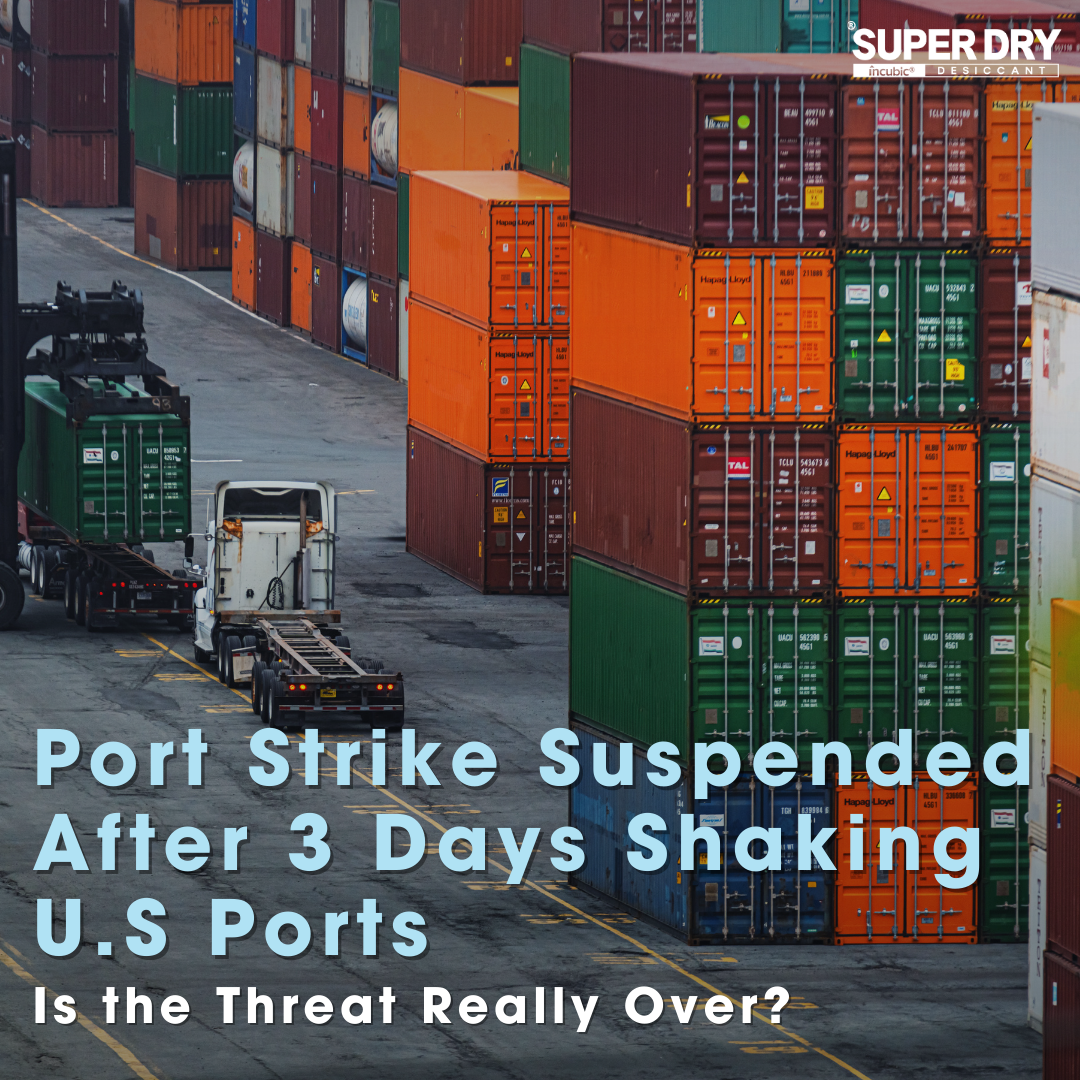Port Strike Suspended After 3 Days Shaking U.S Ports – Is the Threat Really Over?

The International Longshoremen’s Association (ILA), representing 45,000 dockworkers at East and Gulf Coast ports, has reached a tentative agreement with the U.S. Maritime Alliance, suspending their three-day strike until January 15, 2025. This temporary reprieve provides additional time for contract negotiations focused on wages and automation concerns.
The ILA resumed work immediately after the deal was struck Thursday night. The strike, which began earlier this week following the expiration of their contract, had disrupted operations at 36 major U.S. ports, handling nearly half of the nation’s cargo. This raised concerns about significant supply chain issues during the peak holiday shipping season.
The tentative deal includes a wage increase from 50% to 62% over six years, a detail confirmed by a source familiar with the negotiations. The agreement still requires ratification by union members to become permanent.
Potential Supply Chain Impact
The strike’s timing—during one of the busiest shipping seasons of the year—had retailers and logistics companies bracing for potential product shortages. Many businesses, however, had prepared by stocking up and accelerating shipments ahead of the strike, mitigating the immediate impact. Still, had the walkout continued, the effects could have been felt more acutely.
While wages were addressed, automation remains a significant point of contention as negotiations continue. The resolution of this issue will be key to the final contract terms.
Relief for Businesses, But Uncertainty Remains
Though the temporary suspension of the strike offers relief for businesses and the shipping industry, uncertainty remains as the union and the U.S. Maritime Alliance work towards a final agreement before the January 15 deadline. The automation of port operations, which is a key sticking point for the union, will need to be addressed in the final round of negotiations.
The outcome of these negotiations could have lasting implications for U.S. port operations, workforce conditions, and the future of dock work in the increasingly automated industry.
Knowing The Risk
With the uncertainty around labor disruptions, businesses must ensure that goods in transit are protected, especially during longer storage or unexpected delays at ports. Moisture damage is a common risk for goods exposed to fluctuating environments, particularly in longer supply chains like those affected by the dockworker strikes.
Protecting Goods During Supply Chain Uncertainty
Although the strike is temporarily suspended, businesses are reminded of the fragility of global supply chains. Unexpected delays, longer transit times, and storage issues can arise, particularly when disruptions occur at critical ports. That’s why protecting goods from moisture damage during transit and storage is more important than ever.
Super Dry offers advanced moisture control solutions designed to safeguard your products, even in unpredictable shipping environments. With our industry-leading desiccants, you can prevent moisture damage, ensuring your goods reach their destination in optimal condition.
Get a Free Personalized Consultation
Want to protect your shipments from moisture-related risks? Visit our website for a free personalized consultation tailored to your industry’s specific needs. Learn how our moisture control solutions can help minimize risks and keep your supply chain running smoothly, no matter the challenges.
Key Points:
- The dockworkers’ strike is suspended until January 15, allowing more time for contract negotiations.
- Wages are tentatively agreed upon, with automation remaining a key issue.
- Businesses should take measures to protect goods from potential damage during transit and storage disruptions.
